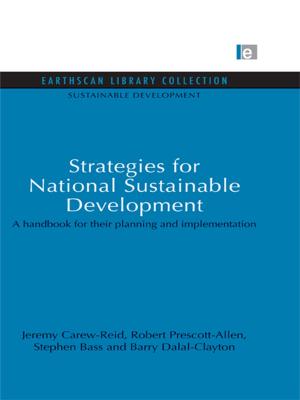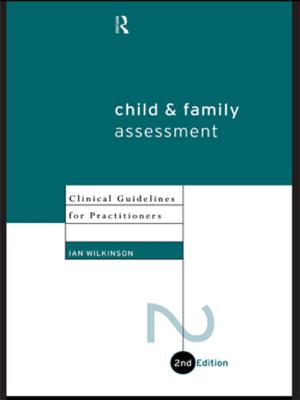Investigating Local Knowledge
New Directions, New Approaches
Nonfiction, Social & Cultural Studies, Social Science, Sociology, Rural| Author: | Paul Sillitoe | ISBN: | 9780429581243 |
| Publisher: | Taylor and Francis | Publication: | May 23, 2019 |
| Imprint: | Routledge | Language: | English |
| Author: | Paul Sillitoe |
| ISBN: | 9780429581243 |
| Publisher: | Taylor and Francis |
| Publication: | May 23, 2019 |
| Imprint: | Routledge |
| Language: | English |
Originally published in 2004. Local knowledge reflects many generations of experience and problem solving by people around the world, increasingly affected by globalizing forces. Such knowledge is far more sophisticated than development professionals previously assumed and, as such, represents an immensely valuable resource. A growing number of governments and international development agencies are recognizing that local-level knowledge and organizations offer the foundation for new participatory models of development that are both cost-effective and sustainable, and ecologically and socially sound.
This book provides a timely overview of new directions and new approaches to investigating the role of rural communities in generating knowledge founded on their sophisticated understandings of their environments, devising mechanisms to conserve and sustain their natural resources, and establishing community-based organizations that serve as forums for identifying problems and dealing with them through local-level experimentation, innovation, and exchange of information with other societies. These studies show that development activities that work with and through local knowledge and organizations have several important advantages over projects that operate outside them. Local knowledge informs grassroots decision-making, much of which takes place through indigenous organizations and associations at the community level as people seek to identify and determine solutions to their problems.
Originally published in 2004. Local knowledge reflects many generations of experience and problem solving by people around the world, increasingly affected by globalizing forces. Such knowledge is far more sophisticated than development professionals previously assumed and, as such, represents an immensely valuable resource. A growing number of governments and international development agencies are recognizing that local-level knowledge and organizations offer the foundation for new participatory models of development that are both cost-effective and sustainable, and ecologically and socially sound.
This book provides a timely overview of new directions and new approaches to investigating the role of rural communities in generating knowledge founded on their sophisticated understandings of their environments, devising mechanisms to conserve and sustain their natural resources, and establishing community-based organizations that serve as forums for identifying problems and dealing with them through local-level experimentation, innovation, and exchange of information with other societies. These studies show that development activities that work with and through local knowledge and organizations have several important advantages over projects that operate outside them. Local knowledge informs grassroots decision-making, much of which takes place through indigenous organizations and associations at the community level as people seek to identify and determine solutions to their problems.















